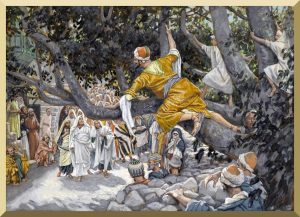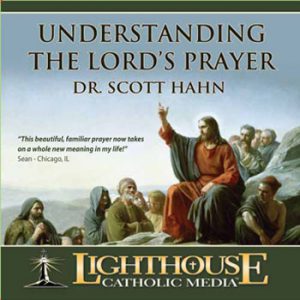In 2001, I worked my second summer in New York. I lived with the Jesuits in Manhattan, but worked up in Harlem at an all-boys middle school. It was a great experience and I got a little stipend for the work. At the end of the summer, on the last day, Fr. Ed Durkin SJ, my supervisor, said to me, at the end of my farewell, “And we’ll take care of your per diem,” meaning my lodging.
“What?” I thought. “But you’ve already paid me for my work. It’s my job to pay for my room and board. You didn’t pay for anyone else’s lodging.” (And, I may be wrong, but I had the feeling from his body language that he was doing it out of obligation.) At the very same moment, another thought came to my mind, “Great! I just saved at least $1500 in food and lodging!” So I accepted his offer. But I didn’t feel right about it: I was taking advantage of his generosity, and I just wanted to avoid spending money.
The starting point for today is the people we’ve hurt. There are occasions, like this situation, that happen once and then we don’t see the person again. And then there are the people we repeatedly hurt, especially our friends and family. I’m thinking, in a particular way, of the way we treat our parents.
 Zacchaeus’s words in the Gospel are very inspiring for those of us who feel guilty for our sins. When he meets Jesus, he says, “Lord… if I have defrauded anyone of anything, I will pay back four times as much” (Lk 19:8). Because he encounters Jesus, who is goodness itself, he sees how far he falls short of goodness and wants to make up for his sins—that’s beautiful! And when we come to Mass, hear God’s Word, and encounter His goodness, we feel loved and want to heal our relationships. So, today, the message is very simple: Not only should we say, “Sorry,” to the people we’ve hurt, but we have to make up for what we’ve done wrong (See CCC 2412). That’s called reparation, and reparation is part of apologizing. If I break your window, for instance, I need to apologize and then I pay for it.
Zacchaeus’s words in the Gospel are very inspiring for those of us who feel guilty for our sins. When he meets Jesus, he says, “Lord… if I have defrauded anyone of anything, I will pay back four times as much” (Lk 19:8). Because he encounters Jesus, who is goodness itself, he sees how far he falls short of goodness and wants to make up for his sins—that’s beautiful! And when we come to Mass, hear God’s Word, and encounter His goodness, we feel loved and want to heal our relationships. So, today, the message is very simple: Not only should we say, “Sorry,” to the people we’ve hurt, but we have to make up for what we’ve done wrong (See CCC 2412). That’s called reparation, and reparation is part of apologizing. If I break your window, for instance, I need to apologize and then I pay for it.
So, for me, I had it on my conscience for years that I had taken advantage of Fr. Durkin. Six years later, I wrote him: “Attached is a cheque for $3000 [I gave more than perhaps what my lodging cost in order to be on the safe side]… I remember that you had to pay for my “per diem” stay while I was at St. Ignatius Residence on 83rd Street. You told me the day I left for Vancouver that you were going to cover it, but I never felt quite comfortable with that. In all honesty, I should have been responsible enough to cover it myself—it was my arrangement.” He wrote back and graciously accepted the money.
Now, in some ways, money and goods are the easiest to repair. A few quick examples from moral theology textbooks will suffice to illustrate what we mean:
-If John “has cheated a company for the amount of $1,000, he should provide $1,000 worth of services for free—either by working extra hours without pay, or in some other manner” (Fr. Michael Giesler, Guidebook for Confessors, 86).
-What about when George injures Pete? “Since Pete is unjustly suffering harms—hospital bills, lost pay, pain, and so forth… George must do what he can to remedy the ongoing injustice” (Germain Grisez, The Way of the Lord Jesus, vol. 2, 452).
-“Finders of lost property usually should return it to the owner or turn it in to some agency responsible for doing so, such as the police or a lost-and-found office” (452). The point is we do our best to return it. (By the way, can someone please tell me why stuff in this church goes missing? I’m just saying… I’m watching all of you…)
-If we were to find a $100 bill on the Grouse Grind, what would be the right thing to do? This actually happened to me: I was the one who lost the money. I wanted to hike very lightly so I only took my car keys and the bill so that I could pay for the people with me. When I reached the top I realized I had lost my money. So I went to the cashier and said, “Excuse me, Ma’am, you won’t believe this, but I lost a $100 bill, so would you allow me to take a free ride down on the gondola, get my credit card from my car and come back up to pay for my friends, please?” She asked, “What time did you lose it?” “I got up here at 11:37 a.m.” “Someone turned in a $100 bill just after that.” Wow! God bless that person.
-Bob has no idea whom he stole the camera from, so he “should give what he owes as alms for his victim’s spiritual welfare and thus rectify the injustice” (452). Usually, we should give the equivalent of the value of what we stole to a charity (e.g. if the camera is worth $500, then I have to give $500 to charity).
Often times, what’s harder to repair are relationships. One reason why so many relationships break down in our families is because we apologize but don’t make up for what we’ve said or done. If, for example, we repeatedly lie to our parents and sometimes apologize but never try to make up for it, is it any wonder there are wounds in our parents? After a while, they’ll think, “You’re not really sorry. You say, ‘Sorry,’ but don’t try to improve.”
That’s why it’s so important that, when we go to Confession, we do a penance. Note that the penance we’re given is never proportionate to what we’ve done wrong; in reality, it’s very light. But it’s urging us, in a very small way, to make up for the wrong we’ve done. It doesn’t mean that we’ll be perfect immediately, but it’s building good habits. Let’s say we find ourselves consistently being impatient with our family—this temptation may be with us all our life. To get over it we should go to Confession more frequently, perhaps every month. After we confess it every month, we’ll be more intentional about doing extra kind things to our family. They’ll see this and appreciate it. Eventually, if we keep on going to Reconciliation and doing penances, we’ll overcome that sin—guaranteed.
 I love the fact that, even though St. Jerome was known to be rude in his letters and very aggressive, he was also known to do great penances to make up for them, so badly did he feel (Fr. Joseph Esper, Saintly Solutions to Life’s Common Problems, 4).
I love the fact that, even though St. Jerome was known to be rude in his letters and very aggressive, he was also known to do great penances to make up for them, so badly did he feel (Fr. Joseph Esper, Saintly Solutions to Life’s Common Problems, 4).
This is all very inspiring, but I believe there’s one reason why we often delay in making reparation: it hurts. If it’s money we owe someone, we don’t like to part with it. Yet if we stole it, then it’s not ours anyway. It’s a matter of justice that we return it. And if we have to apologize to someone, it really costs our pride; we hesitate because it’s going to be awkward and embarrassing. But this is better than a broken relationship and someone remaining hurt. Unless there’s something worse that can happen by contacting someone (which is possible), we really should just swallow our pride and apologize. And if we’re unsure, let’s pray today that the Holy Spirit will open a door so that we can reconnect with this person and repair what we’ve done.
Let’s end with a story. Back in 1989, Scott Hahn gave a talk to 35 people about his conversion story. A year later, 35,000 copies of the talk were distributed over the country and now over a million. If he had known that, he would have said some things differently. One of them is the way he spoke of a priest he met while he was looking into Catholicism. He talked about a priest in Grove City and spoke very poorly of him. And because there’s only one Catholic church in Grove City, everyone knew whom he was talking about. And Scott found out from many people that the priest there, Fr. John, heard what he said and was very hurt.
Eleven years later, Scott was reflecting on the Our Father (“Forgive us our trespasses”) and realized what he had to do. He prayed one night and called: “Can I speak to Fr. John?” The person answered, “You are. Who’s this?” “This is Scott Hahn. I don’t know if you remember me.” And suddenly Fr. John muffled the phone and shouted out, “Hey, everybody, it’s Scott Hahn!” And everyone started laughing. “What’s so funny?” Scott asked. “Oh, never mind. What do you want?” “I wanted to call for a while now but I just had to call tonight. I was praying about it and I said some things about you…” “Yes?” “And I’m really sorry! Would you forgive me?” “Yes, I forgive you, and yes, it really hurt, and I’m glad that you’re really sorry, because those words cut deeply. I was trying to show you hospitality, and you said some things that have come back to me. Now I admit God used them, and some other things too, and He’s really brought some changes in my life and in my priesthood.”
 It was the most humiliating thing for Scott because that was the night of Fr. John’s farewell party after 20 years at the parish and he kept on repeating, in front of everyone, what Scott was saying! But, Scott says, “It hurt so good” (Scott Hahn, Understanding the Lord’s Prayer, Track 14, 2:34). But he’s made reparation: the bad things he said about Fr. John was on CD, and now his apology is also on CD.
It was the most humiliating thing for Scott because that was the night of Fr. John’s farewell party after 20 years at the parish and he kept on repeating, in front of everyone, what Scott was saying! But, Scott says, “It hurt so good” (Scott Hahn, Understanding the Lord’s Prayer, Track 14, 2:34). But he’s made reparation: the bad things he said about Fr. John was on CD, and now his apology is also on CD.
Let’s not be afraid of doing the right thing. It’s beautiful when relationships are healed. Reparation is part of apologizing.